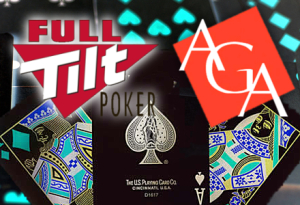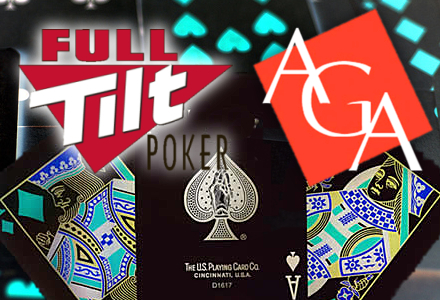 After promising to deliver an update to US players this Sunday (15) on the status of Full Tilt’s efforts to refund player balances, ‘FTPDoug’ posted a message on poker forum TwoPlusTwo that (a) clarified little, and (b) enraged many. The meat of the message:
After promising to deliver an update to US players this Sunday (15) on the status of Full Tilt’s efforts to refund player balances, ‘FTPDoug’ posted a message on poker forum TwoPlusTwo that (a) clarified little, and (b) enraged many. The meat of the message:
“FTP’s international business operations are returning to normal while we focus on ensuring the safe and orderly return of US player deposits. We are absolutely committed to making sure that US players are refunded as soon as possible. We apologize for the delay and the fact that we underestimated the time it would take to work through these issues. We will update our US players when we have more specific information to provide.”
As even the date of the next announcement is no longer being given a hard target, the patience of FT’s former US players is rapidly evaporating, especially when viewed in the light of PokerStars announcement on Friday that it had so far returned over $100m to its former US players.
While Full Tilt is saying little, the American Gaming Association has issued a White Paper on internet gambling (read it here). The lobby group that looks after the interests of the US land-based casino giants is keen to capitalize on the void created by the events of Black Friday, and the White Paper urges Congress to swiftly enact federal pro-online poker legislation that allows AGA members to offer services while preventing non-US companies from doing likewise.
The AGA starts by acknowledging the obvious, namely that “Americans like to gamble online and have demonstrated that they will do so even if their government tells them it is illegal.” To address this problem, the AGA envisions a federal poker plan with opt-out provisions for individual states. The AGA advocates for poker-only legislation, in part because it recognizes that opposition from sports leagues (the NFL, in particular) means that sports betting will likely never be deemed suitable for consumption outside Nevada. But by leaving slots and table games off the menu, the AGA is simply protecting its members’ chief cash cow.
The AGA complains that if unlicensed operators aren’t effectively blocked by “tough technological fences,” they will continue to offer casino and sports betting to US citizens. This would create “an un-level playing field” that would “siphon dollars from the US market” (i.e. from AGA members). To fend off a potential liquidity advantage by international operators, the AGA believes the US “would be well advised” to follow the French and Italian ring-fenced model (albeit with less punitive tax rates).
The AGA applauds so-called “suitability-based licensing” because it weeds out potential licensees who aren’t members of the AGA. It cites the Oregon Racing Commission’s requirement for applicants to demonstrate their “good repute and moral character.” The AGA feels that “such open-ended standards ensure that regulators have the discretion to deny license applications, or revoke previously granted licenses, when they simply doubt the integrity of the license applicant.” Would you let this applicant date your sister? No? Move it to the bottom of the pile, then…
The AGA sums up its position thusly: “US law should clearly prohibit those forms of Internet gambling that are not legal, clearly authorize those that are and provide strong law enforcement tools to stop illegal gambling online.” Guess we should be grateful the AGA didn’t also ask for generous federal subsidies to offset the costs of setting up their online platforms.
